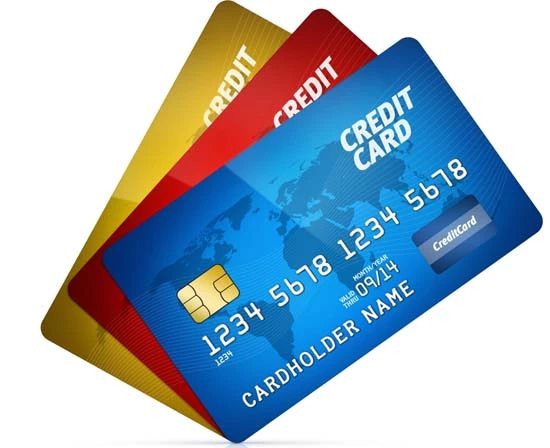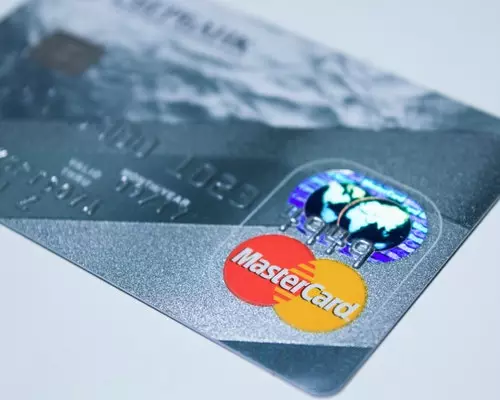This post may contain affiliate links. If you use these links to buy something we may earn a small commission. Thanks.
A week ago, I shared up to six options of a home loan you can get with a 650 credit score. The credit score falls within a fair margin, which I also said is easy and fast to improve so you can get better interest. But then, can you straighten your credit report with only a credit card account? And if yes, how long after paying off credit cards does credit score improve?
Well, this is our topic of today, whereby we’re going to look at how you can use a credit card/s for the good of your credit report. The reason for saying this is because some people have had their credit cards for a while now. But then, their credit score happens to dip instead of growing.
Why You Should Work Hard for a Good Credit Score
In truth, your current credit score matters a lot. No, not just about the amount of loan and interest rates you can get. The insurers will also use your credit score to determine the insurance/premium rates to give you for that mortgage or auto loan.
Also, it’s not all stores will let you use buy now pay later with no credit check. In fact, some of the best catalogs only lease their products to individuals who are financially responsible. That’s to say it might be hard to qualify for special financing from such providers if you have bad credit or even low credit scores.
Anyway, what I’m trying to say’s that you can still survive with bad credit, but it won’t be always easy and cheap. Your credit score is a huge part of your financial health, and the higher, the better.
Some of the best features and benefits you can unlock with a good credit score include:
1. Have more housing options:
That’s right. Quite a number of landlords will use your credit score to determine if you’re financially trustworthy or not. when you have a good credit score, it will not only be faster to get your desired home or apartment. But also the landlord may not ask you for a security deposit.
2. Get Insurance Discounts:
Insurance companies usually determine your insurance risk level by your past “insurance” history and credit score. The stronger your is, the easier it will be to find the best auto insurance with lower premiums.
3. Qualify for the Best Credit Cards
Technically, it’s not everyone will get approved for a credit card with no credit history. Even worse, bad credit will only guarantee your starter cards, which will charge you high-interest rates.
4. Save Big on Interest Rates:
That’s very true. When you have a high credit score, many lenders will be willing to deal with you and at a favorable interest rate. Of course, you might think of that 0.5% drop as insignificant, but it can save you thousands of dollars over the lifetime of a large loan.
5. Waived Security Deposit:
Some lenders, landlords, and utility companies are likely to ask for lower security deposit amounts if you have a strong credit history. The same applies with some of the best buy now pay later car parts stores, whereby a dealer like BB Wheels will give the PayTomorrow Prime with no down payment requirement. Then, the PayTomorrow Classic requires a down payment, though from as low as $59.
6. Enjoy Higher Borrowing limits
In most cases, the lenders will base your loan limit on your current credit report and income. So, you’re highly likely to qualify for more funds if you have a good credit score and a stable income.
7. Use first-rate cell phone service
Did you know some of the best phone carriers still check your credit information before you register? True, you can get approved for a cell phone with bad credit from most of the providers, but not all. A major carrier like Verizon will first perform a credit check before they approve you for device financing.
8. You can Brag about it
Last but not least, you have got the right to brag about your excellent credit score or if you’ve never fallen into bad credit. It’s something many people tend to struggle to maintain, which means you should be proud of your achievement and keep doing it.
How to Improve Your Credit Score with a Credit Card
A credit card is, by far, the easiest way to grow your credit score. It usually falls under the category of revolving credit accounts, whereby you can re-borrow money immediately after paying back.
More on that, you can use most credit cards to shop within the United States, as well as overseas. You just need to make sure that particular shop, diner, or hotel accepts the card you have in possession. However, after using, ensure you’ve paid the entire credit card balance before the due date.
But again:
How Long After Paying Off Credit Cards Does Credit Score Improve?
Overall, you’ll only notice a change in your credit report after the major credit bureaus, like Experian, Equifax, and TransUnion, update your account. But then, the credit agency cannot update your credit report until the credit card company has sent your monthly update.
Meanwhile, card issuers usually update your account information with the credit bureaus at varying times. That’s, it all depends on where and when your billing cycle falls in, as well as the credit card company you’re using. Why do I say this?

In general, there’s no exact day, time, and frequency credit card companies have to report to Experian and or other credit bureaus. It’s a voluntary practice, which gives them the right to decide when and how often they should send the data.
According to Equifax, however, the card issuer should report at least once per month, “preferably on the billing cycle date. In other words, this is the day the company issues the charges of your most recent card billing cycle (also known as statement closing date).
But again, different people happen to have their credit card billing cycle at different times of the month. So, most large companies will report to the credit bureaus multiple times, with each file containing all the accounts of the similar billing cycle. If it’s a smaller company, they may only send one file a month that has the entire credit accounts from all the statement dates.
Even then, your account information will take some days or even a week to reflect the changes once the bureau updates it. At Experian, they claim you may see the change immediately or up to sixty days as it also depends on several factors.
The 6 Factors That May Hinder How Fast Your Credit Score Improves
As I’ve just mentioned, you may notice an improvement in your credit score immediately after paying off the credit card balances. or else 30-60 days. Some of the factors that are responsible for this include:
Credit Utilization rate: In a nutshell, this is the total amount you owe on your credit card divided by your credit limit. It’s one of the factors that the national credit bureaus use to calculate your scores before updating the reports. The total amount owed accounts for 30% of the credit score, which is relatively highly influential.
Payment History: credit bureaus also use your card payment history to calculate your overall credit scores. The factor accounts for 35-40% of your score, which, of course, is the most influential. So, you should ensure you make all your payments on time while avoiding all negative events that could cause your score to dip. Such negative information includes late payments, bankruptcy, foreclosures, and repossessions.

Note, the time you pay can also determine if your credit score will improve that particular month or not. This is so as the scoring models will calculate your utilization rates based on the exact balance that your card issuer reported to the credit bureaus.
Issuer reporting schedule: that’s right. If the credit card company reports to the bureaus multiple times a month, the better. In such a case, your credit account could be reported early in the month, which means your credit score could come out before that month ends.
Age of your credit history: usually, the age of your credit accounts determines 15% of your score. That means you could see your credit score improve faster if you have kept your credit accounts in good standing over a longer time.
Credit Check (hard inquiry): when you try to apply for a new line of credit, some of the lenders might dig deep into your credit history (a hard inquiry) to make a lending decision. Sadly, all the hard inquires you had in a particular month will appear on your credit report and can (temporarily) lower your score). So, it would be safe to keep your inquires for a new loan or line of credit as low as possible when you’re trying to improve your score.
Credit Mix: Having a credit card account/s and an installment loan (like a mortgage), can help improve your scores faster than when you have only one. Of course, the factor only accounts for 10% of your score but it could still make some difference in the long run.
Final Thoughts:
At this point, having a good credit score is very crucial. Not only does it become easier to acquire a short-term and long-term loan. But also it’s something to be proud of and even brags about to friends without shame. You just have to keep the same spirit throughout, ensuring you pay off your credit balances on time while maintaining the credit utilization rate as low as possible.
In fact, the scoring models and even the majority of lenders require you to keep your utilization rate below 30%. Yes, the margin’s possible to maintain if you can manage your credit responsibly. One of the ways you can do this is by paying down your credit card balances, increasing your credit limits, and or opening multiple card accounts.
However, don’t forget a new loan or line of credit could lead to a hard inquiry or lower the average age of your account. That means it could hurt your credit score at that moment, but then will help improve the points over time.
